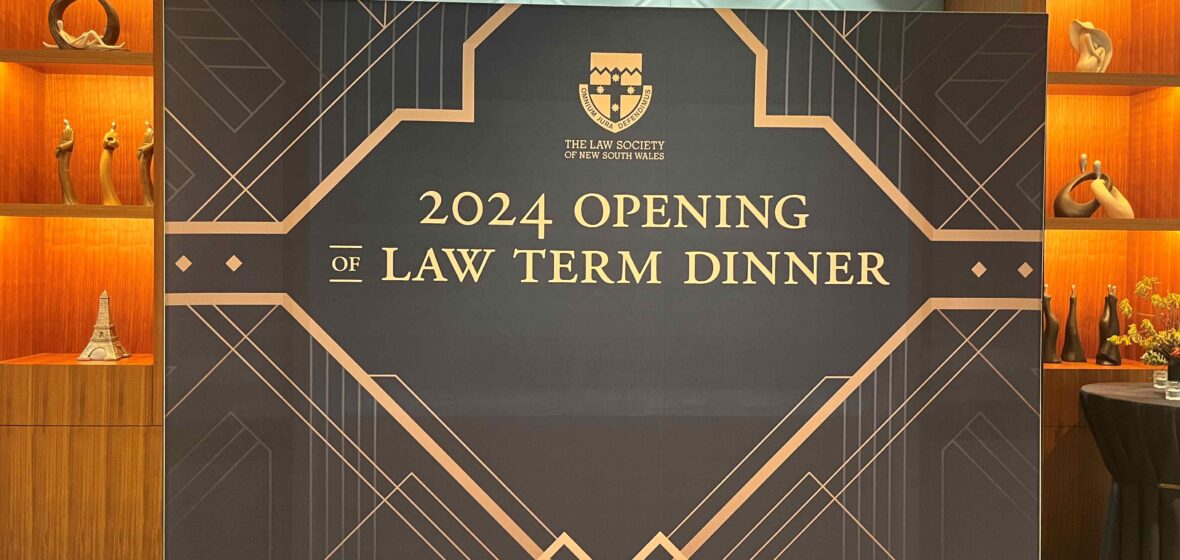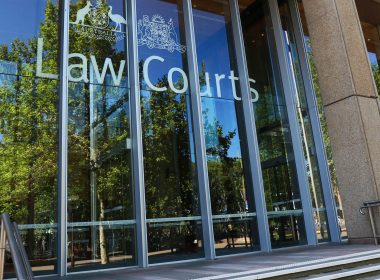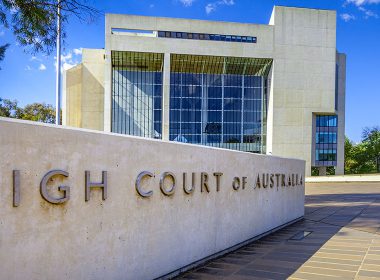The 2024 President of the Law Society of NSW will explore legal technology, the wellbeing of the profession, and the evolving role of lawyers in society during his term.
Brett McGrath unveiled his priorities for the coming year during last night’s sold-out Opening of Law Term Dinner at the Sofitel Sydney Darling Harbour.
“Together as a united profession, with our diligence and precision, we can continue building a legal system that upholds the rule of law and defends the rights of all,” McGrath told the audience.
“My pledge to you all is that I will do my utmost to advance harmony, truth, faith and hope for all members through 2024.”
The three priorities for McGrath’s term are AI and the legal profession, the service of lawyers to their communities and the wellbeing of solicitors.
As part of the first priority, the Law Society will convene a taskforce of legal and technology experts to navigate the opportunities and challenges of AI.
“When you are faced with fundamental changes, people want big predictions,” McGrath said in his address.
“AI also raises ethical questions for the profession: questions about billing and costs; government regulation; and issues like deepfake voice or video recordings in evidence.
“The taskforce is central to the Law Society’s commitment to supporting the entire profession as it adapts to technological and innovative advancements that shape the justice system and the way legal services are delivered.
“The Law Society has already contributed its expertise in submissions to government inquiries into AI at both the federal and state levels. The work of the new AI taskforce will benefit the Law Society’s members, who work across private practice, the government legal sector, in-house lawyers, and the legal assistance sector.
“The goal for the AI taskforce is to be a trusted source of expert advice and assistance for the Law Society, and through it, for the solicitor profession across NSW. Its members will be drawn from the law, justice system, academia, and government.”
McGrath begins his term as President of the Law Society of NSW as a successful private practitioner, most recently at Marsden’s Law Group, the Campbelltown-based firm where he started his legal career. He is a former Senior Judicial Registrar at the Federal Circuit and Family Court of Australia.
He is the first graduate of Western Sydney University to become President of the Law Society.
Chief Justice of the Supreme Court Andrew Bell used his address to discuss the bicentenary of the Supreme Court, which will be marked in May.
“The 200th anniversary of the Supreme Court is a milestone worthy of celebration but it is not a celebration for celebration’s sake. It marks 200 years of continuity of the rule of law in New South Wales,” Chief Justice Bell said.
“As I point out to new lawyers on their admission, in a world in which there is much global uncertainty and insecurity, the rule of law is more important than ever and not simply an academic construct or a phrase of some mere theoretical import. At its simplest, it is the opposite of the arbitrary abuse of power and the rule of autocratic dictators and populists.
“The rule of law does not exist in a vacuum, and the Court’s vivid history animates it.”
As part of the bicentenary, the Court has installed a “History Wall” in the Queens Square court complex and will publish a book on the Court’s history, which will be presented to every new admittee from 17 May 2024.
Another new initiative this year is to offer Indigenous students or young practitioners the opportunity to have a mini-internship with a Supreme Court judge, the Chief Justice said.
“It is proposed that such opportunities be integrated into existing Indigenous internships offered by Legal Aid, the Public Defenders, the DPP and a number of leading private law firms,” he said.
“There are some outstanding Indigenous lawyers in our profession, but they are far too few, and a great burden is placed upon them.”
While acknowledging the role played by lawyers, often “over and above” the requirements of their day jobs, Chief Justice Bell also said the judiciary, especially the state’s magistracy, deserved recognition.
“Local Court lists which have, I am reliably informed, in many cases grown to more than 140 matters a day, are simply unsustainable, both in terms of the provision of justice for litigants and in terms of the working conditions of the magistracy,” he said.
“The vital work undertaken by magistrates and the other members of the State’s judiciary is an essential service that must be properly and meaningfully valued as such, and properly resourced in accordance with its character as an essential service.”




